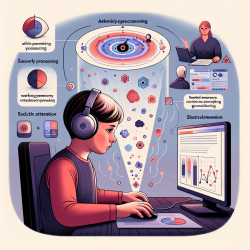In the field of speech pathology and audiology, continuous professional development is essential. John H. Gilbert's interview, conducted by the Editor of Human Communication, provides a wealth of insights that can help practitioners refine their skills and improve their practice. Gilbert, a renowned speech pathologist, audiologist, teacher, researcher, and author, offers unorthodox yet compelling perspectives on training, methodology, and the future of the profession.
Key Takeaways from Gilbert's Interview
Gilbert emphasizes the importance of understanding the 'why' behind communication disorders before delving into the 'how' of treatment. This foundational approach can significantly enhance the efficacy of therapeutic interventions. Here are some critical insights from the interview:
- Complete Parity: Gilbert advocates for a collaborative environment where all members, including students, are fully informed about the program's issues and decisions. This approach fosters a sense of ownership and mutual respect among all participants.
- Methodology vs. People: Gilbert is critical of method-oriented programs that prioritize techniques over understanding the individual. He believes in focusing on the person and their unique needs rather than rigid methodologies.
- Comprehensive Training: The program at the University of British Columbia (UBC) includes a long internship period and practical exposure to various clinical settings. This hands-on experience is crucial for developing proficient clinicians.
- Interdisciplinary Approach: Gilbert's program integrates knowledge from multiple disciplines, including psychology, linguistics, and applied acoustics, to provide a holistic understanding of speech, language, and hearing disorders.
Practical Applications for Practitioners
Practitioners can implement several strategies based on Gilbert's insights to enhance their practice:
- Adopt a Holistic View: Focus on understanding the underlying causes of communication disorders rather than just the symptoms. This approach can lead to more effective and personalized treatment plans.
- Encourage Collaboration: Foster an environment where team members, including students, feel valued and informed. This collaborative approach can lead to innovative solutions and improved patient outcomes.
- Emphasize Practical Experience: Ensure that training programs include extensive hands-on experience in diverse clinical settings. This exposure is essential for developing well-rounded and competent clinicians.
- Integrate Interdisciplinary Knowledge: Incorporate insights from various fields, such as psychology and linguistics, to provide a comprehensive understanding of communication disorders.
Encouraging Further Research
Gilbert's interview underscores the importance of ongoing research in the field of speech pathology and audiology. Practitioners are encouraged to stay updated with the latest research findings and incorporate them into their practice. This commitment to continuous learning and improvement is vital for advancing the profession and providing the best possible care to patients.
To read the original research paper, please follow this link: An interview with John H. Gilbert.










